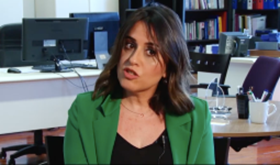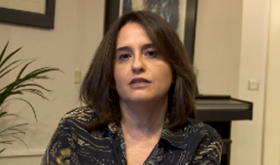This talk explores contemporary Turkey through the lens of global inequality and the political transformations it fuels across emerging economies. Drawing on Branko Milanovic’s "elephant graph," the discussion highlights how globalization’s two primary beneficiaries—rising lower- to middle-income groups in countries like China and India, and the global top one percent—have reshaped the economic and political landscape. Turkey, situated between these forces, is examined as part of this broader shift, where global wealth redistribution has empowered a new kind of middle class.
Unlike the historically secular, elite-oriented middle classes of the past, these new middle groups in Turkey and other emerging powers are more nativist and culturally grounded in local identities. Their rise fuels the populist political wave, aligning personal aspirations with national geopolitical ambitions. This talk offers institutions a critical understanding of how Turkey’s domestic political shifts and assertive foreign policies are not isolated developments, but rather part of a global pattern rooted in the realignment of economic power, cultural identity, and demands for international recognition.
Turkish Foreign Policy
This talk delves into the evolution of Turkish foreign policy from the Cold War era to the present, highlighting the strategic recalibrations driven by global and regional shifts. In the wake of the Soviet Union’s collapse, Turkish political elites faced a dramatically transformed geopolitical landscape. Their responses, shaped by both external pressures and domestic limitations, revealed two distinct foreign policy traditions: caution and daring. Until the 1990s, Turkey predominantly followed a cautious, Western-oriented foreign policy rooted in Cold War bipolarity and lessons from the Ottoman collapse. This alignment emphasized stability, multilateralism, and integration into Western-led institutions.
As the Cold War ended, a call for a more assertive and autonomous foreign policy gained momentum. Particularly after 2011, amid the unraveling of the Middle East and broader international order, Turkey pursued bolder strategies, forging non-traditional alliances and redefining its role in regional politics. This transformation included a shift toward military assertiveness, a rethinking of alliance structures, and a broader reconfiguration of development and national identity strategies. This talk provides institutions with a strategic perspective on how Turkey's evolving foreign policy reflects both historical legacies and contemporary geopolitical opportunities.













